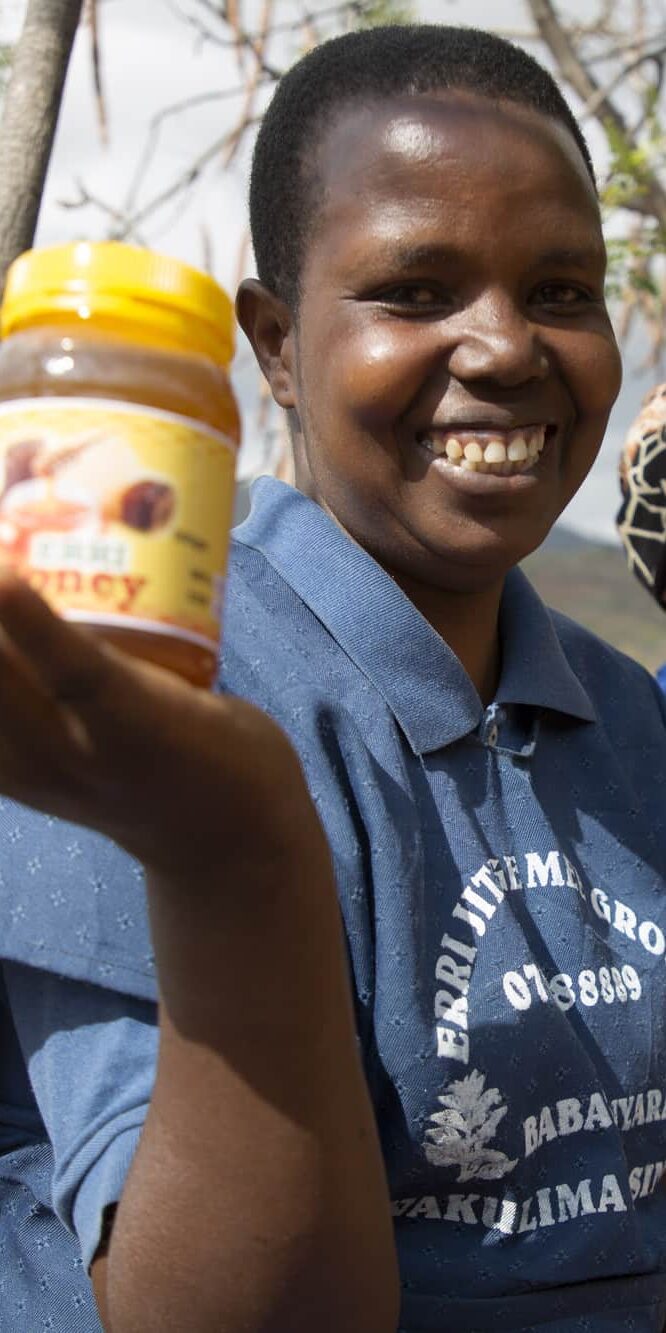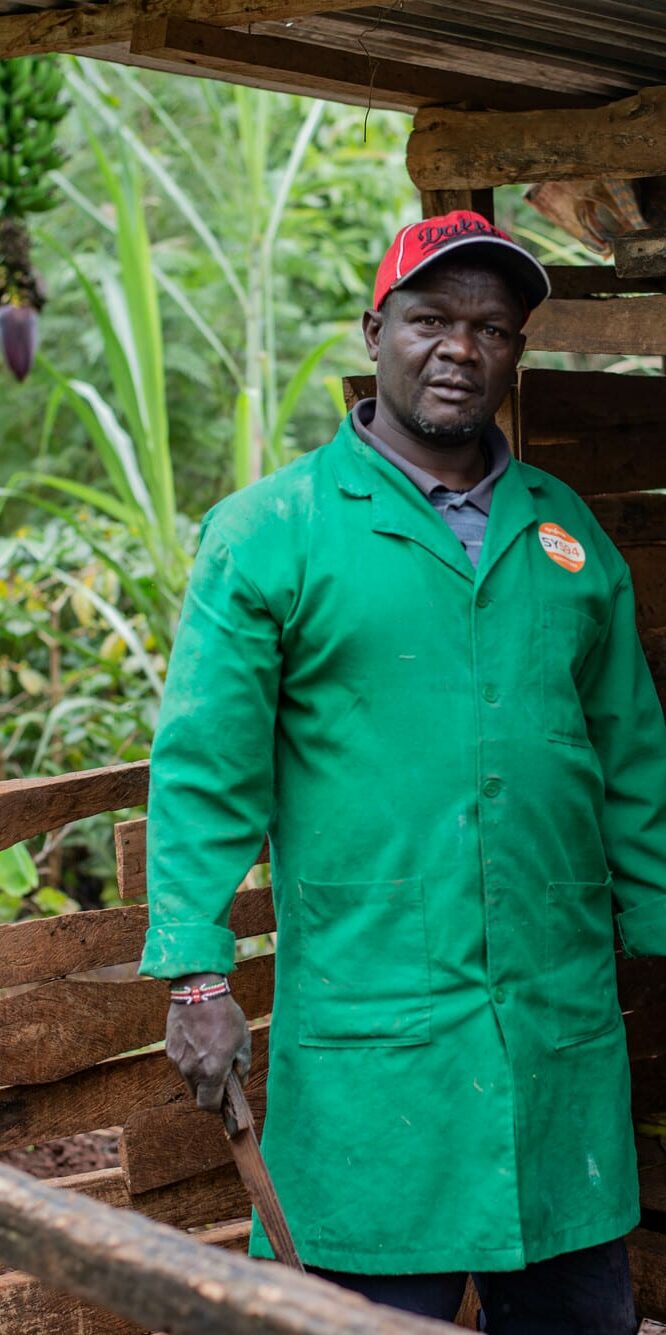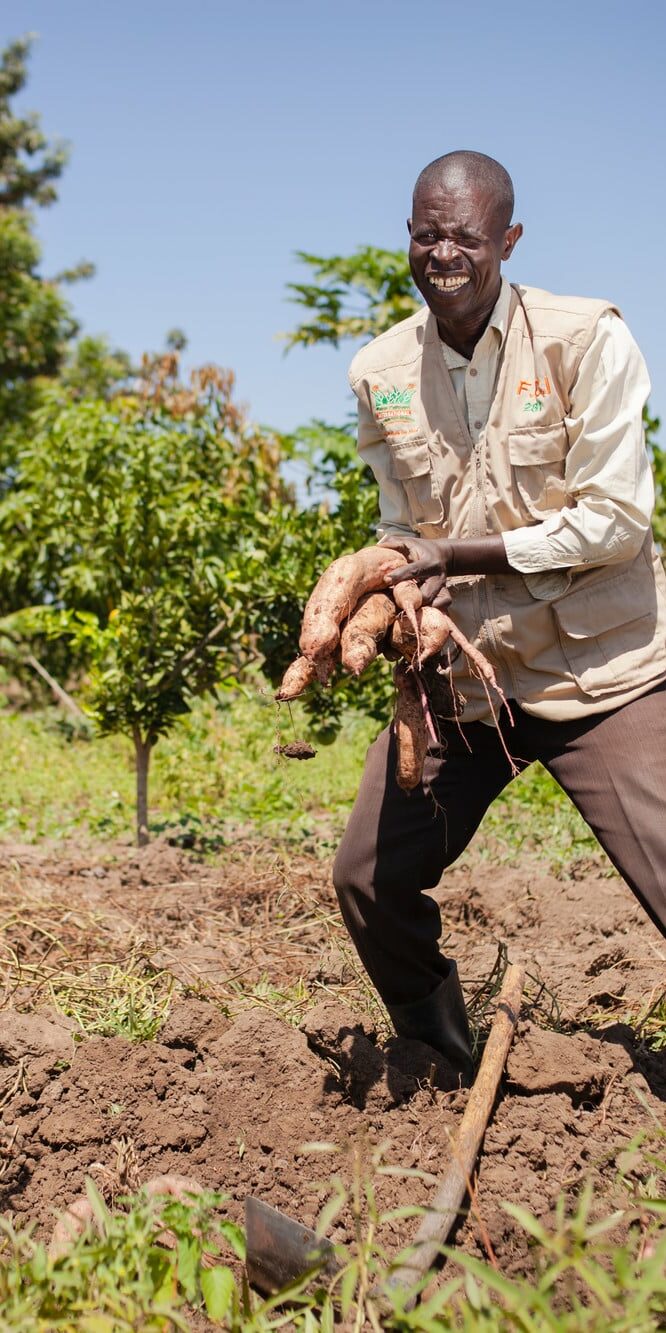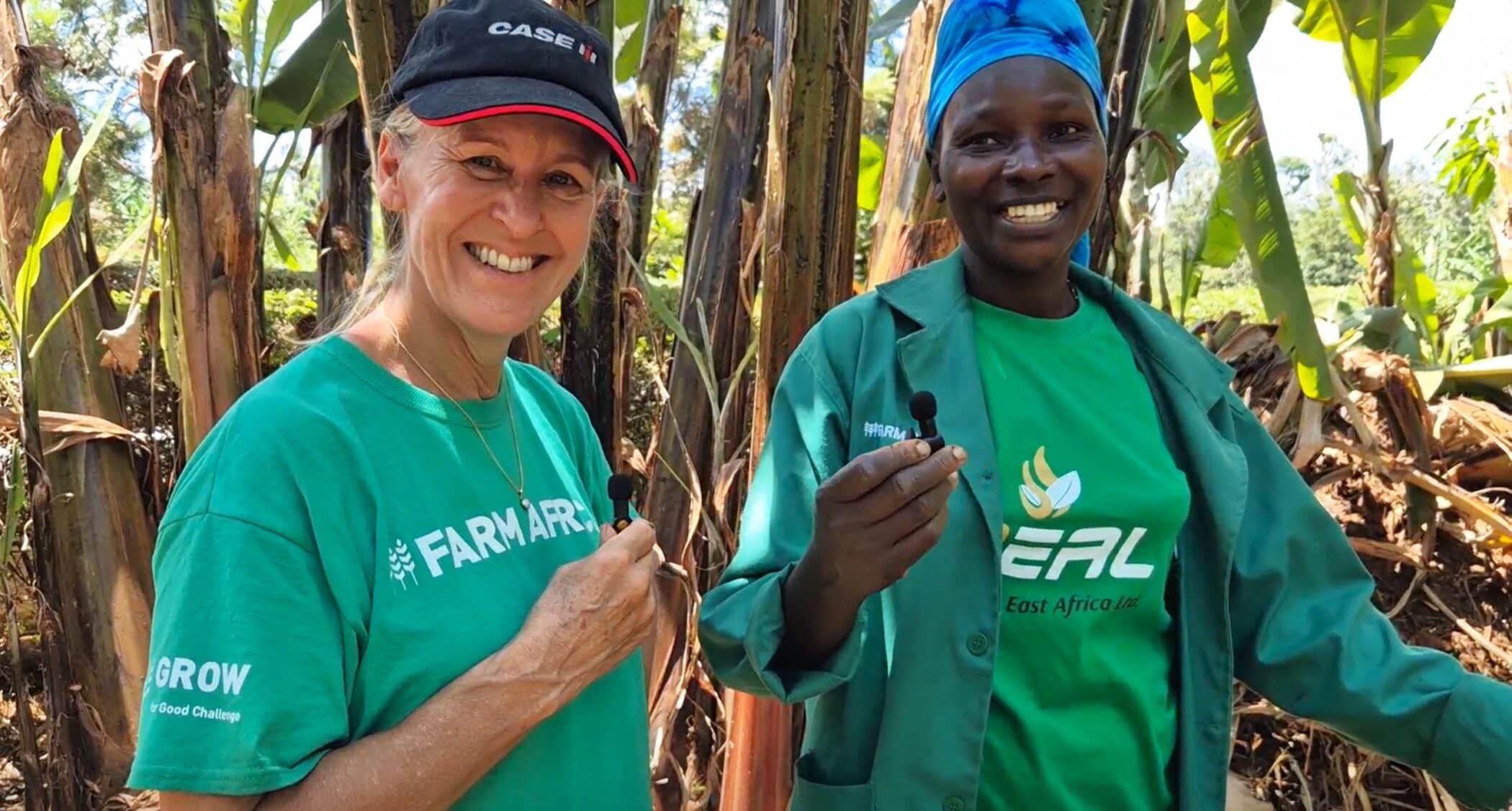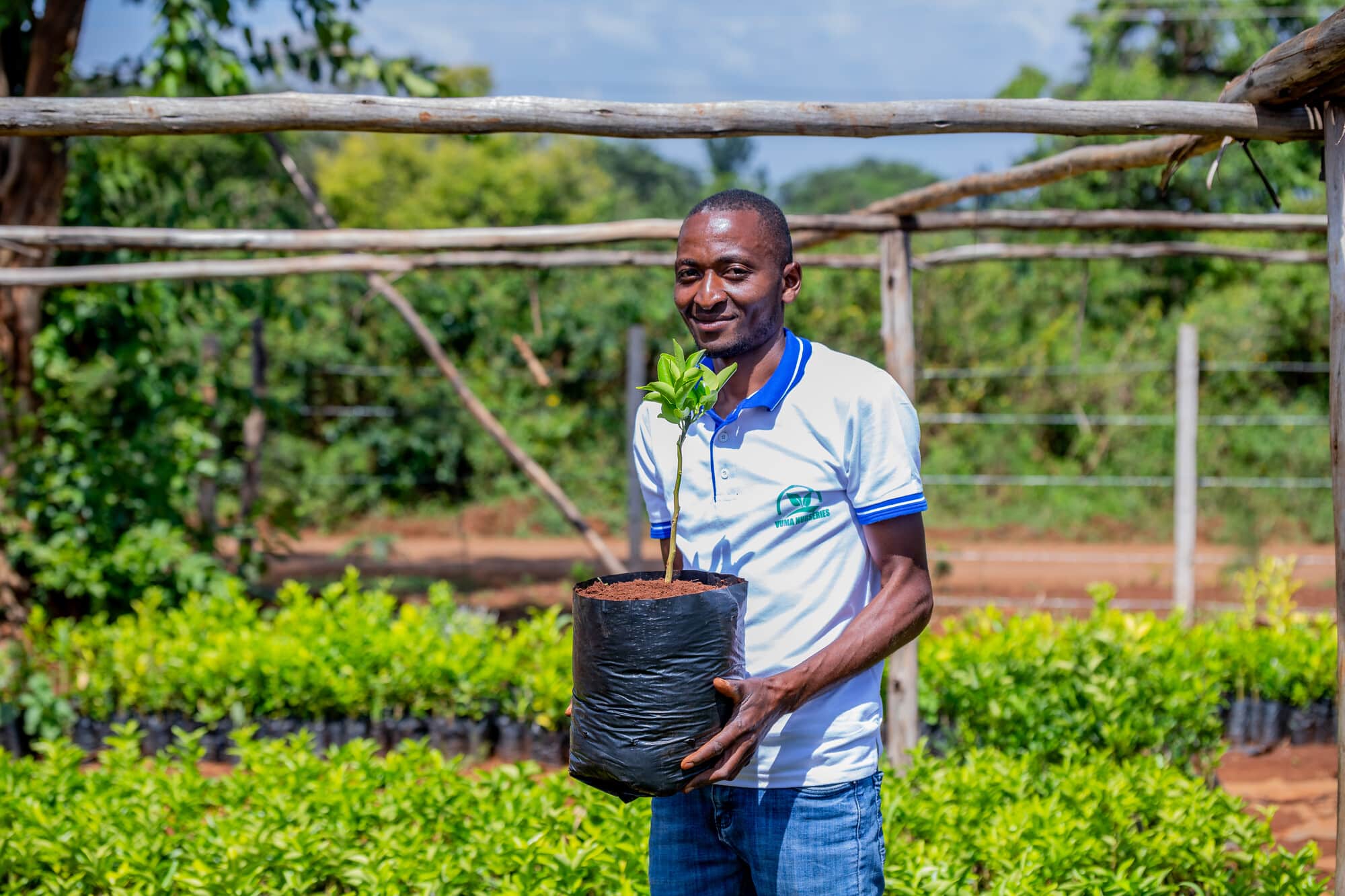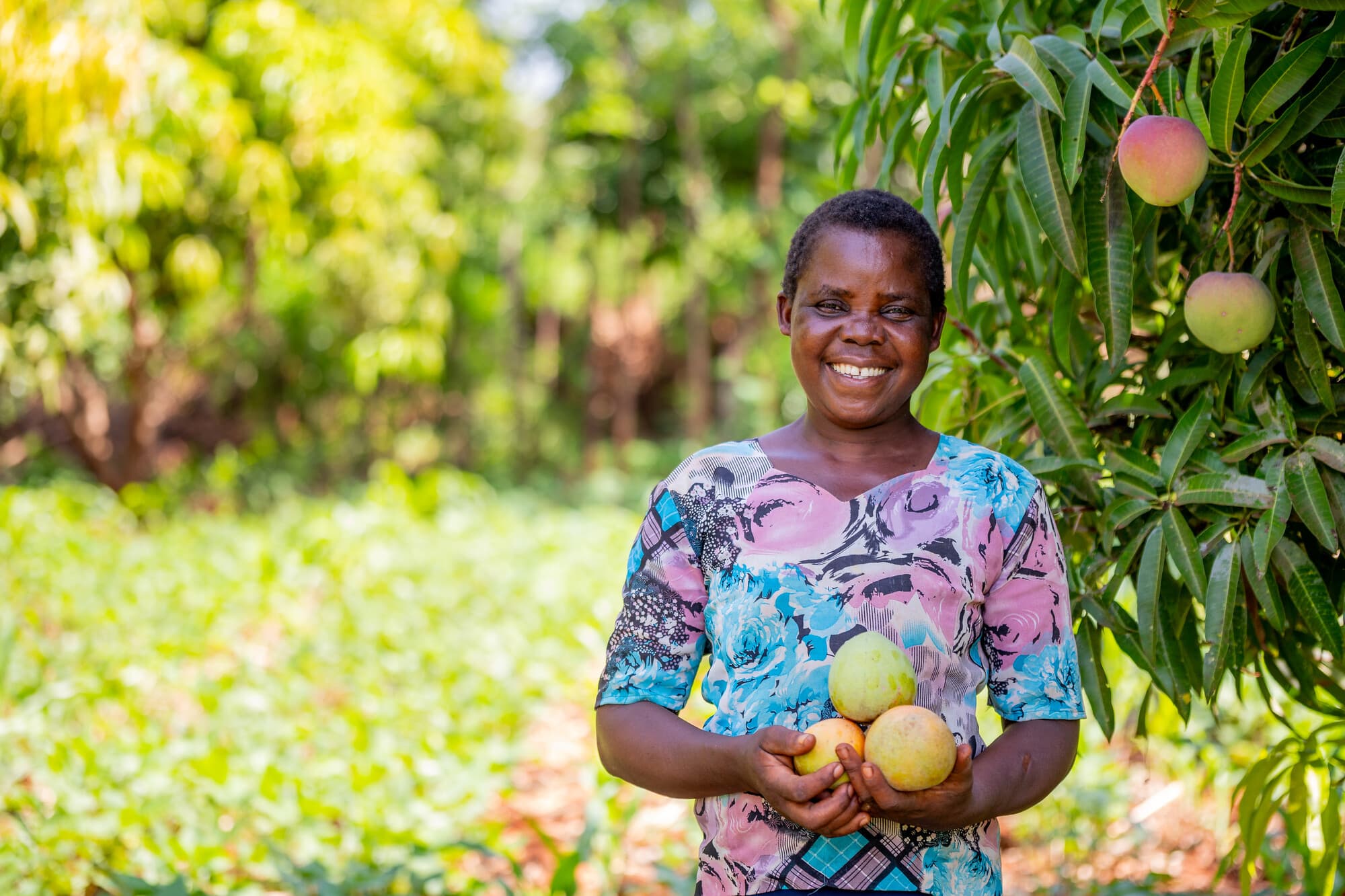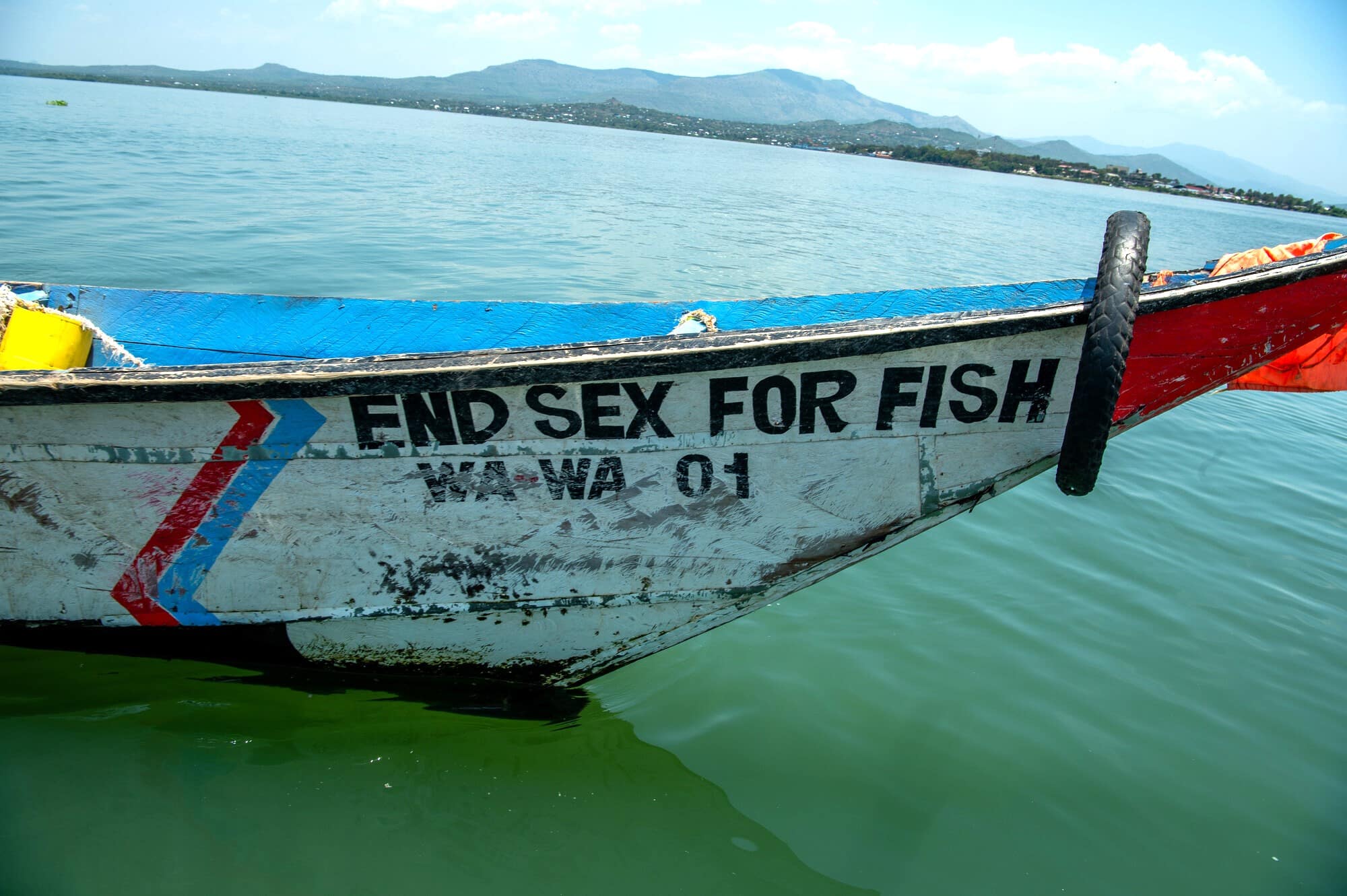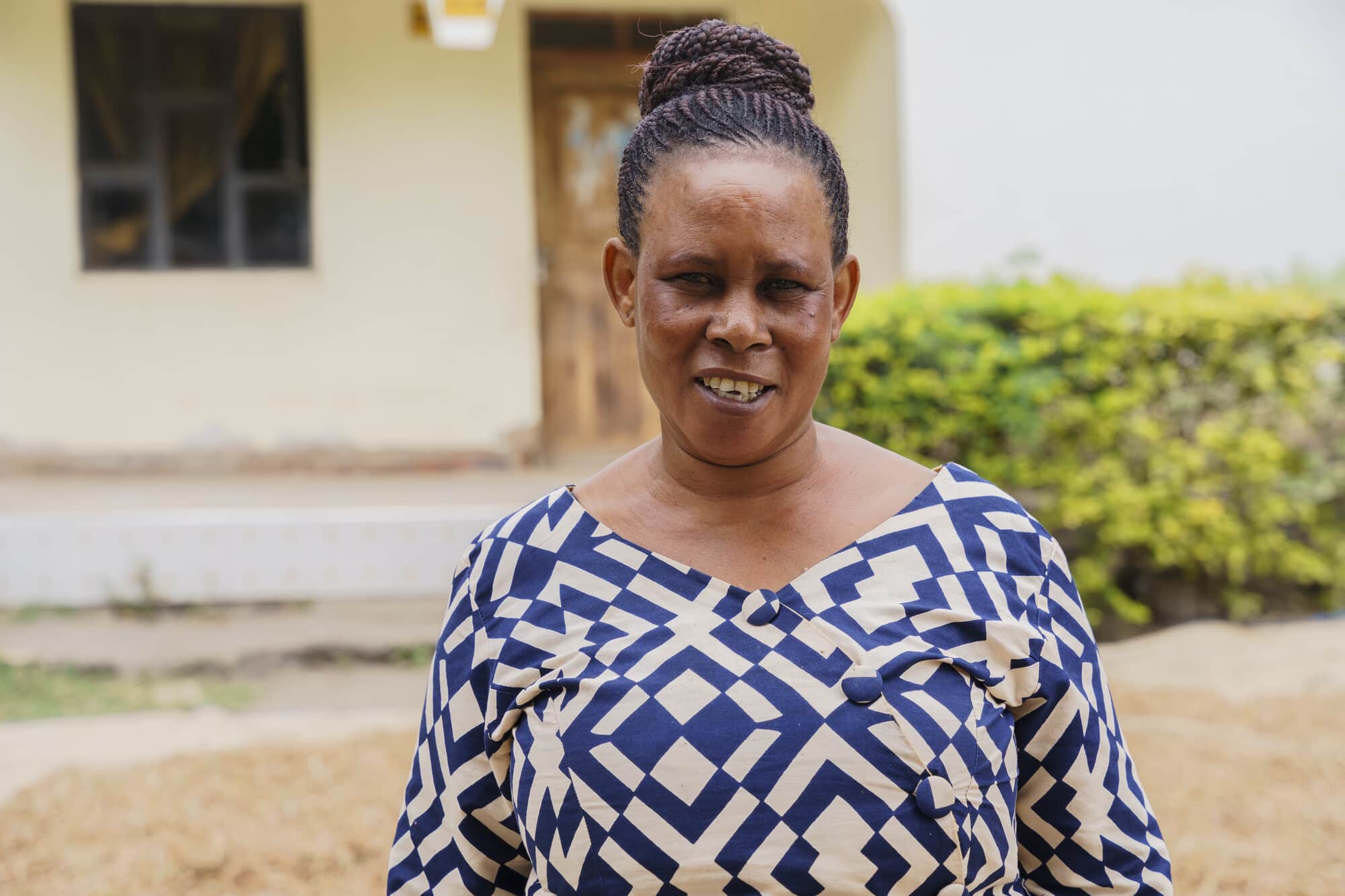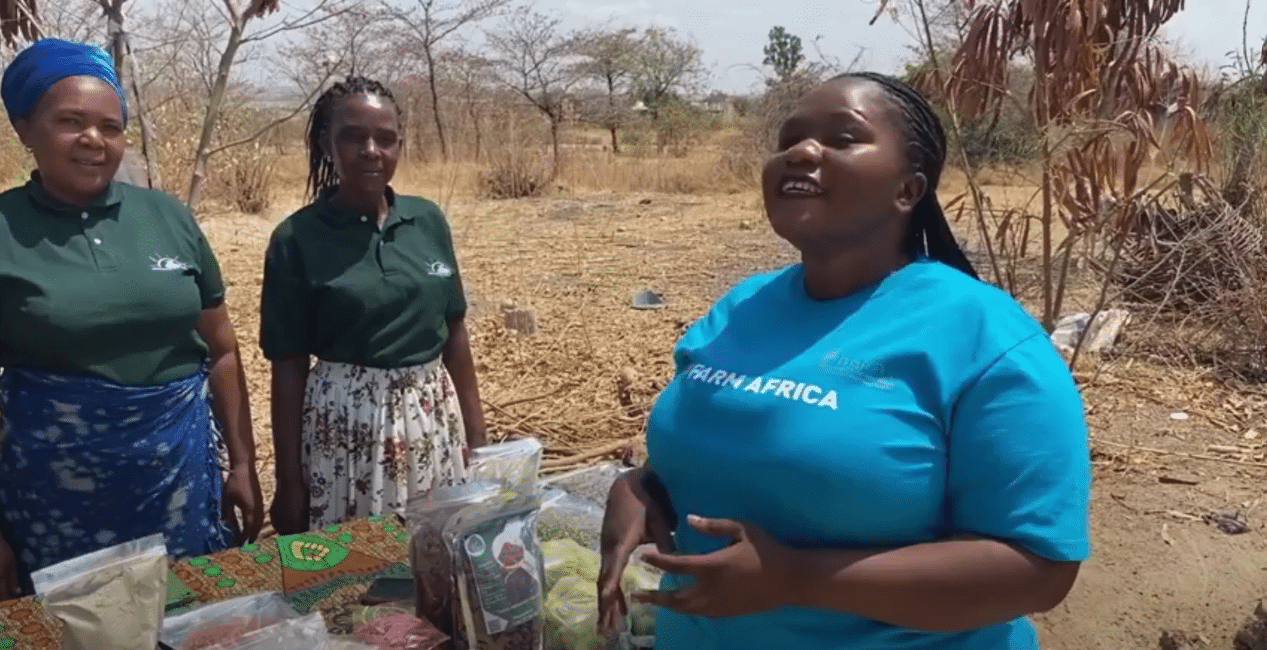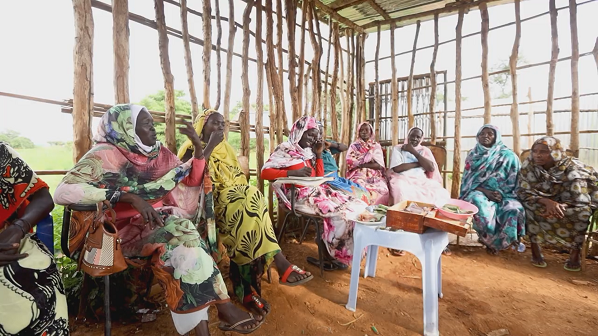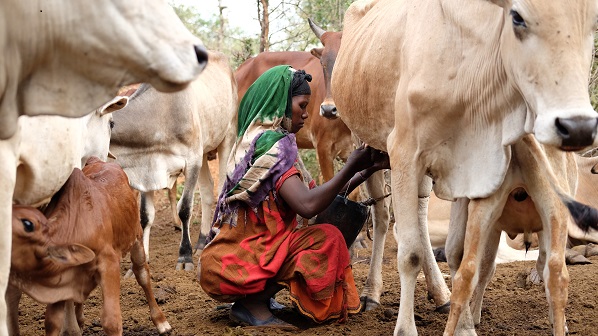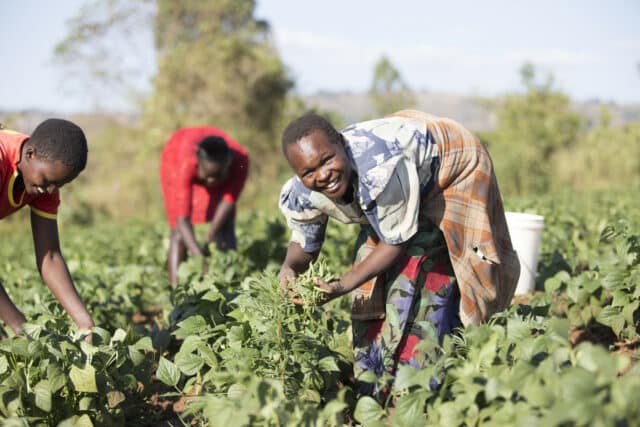The problem
Smallholder farmers in eastern Africa often do not earn much from their arduous work.
They struggle to unlock the potential of their produce and get a good price for their crops.
Many are unable to access markets, which restricts their bargaining power and forces them to sell their crops at a lower price.
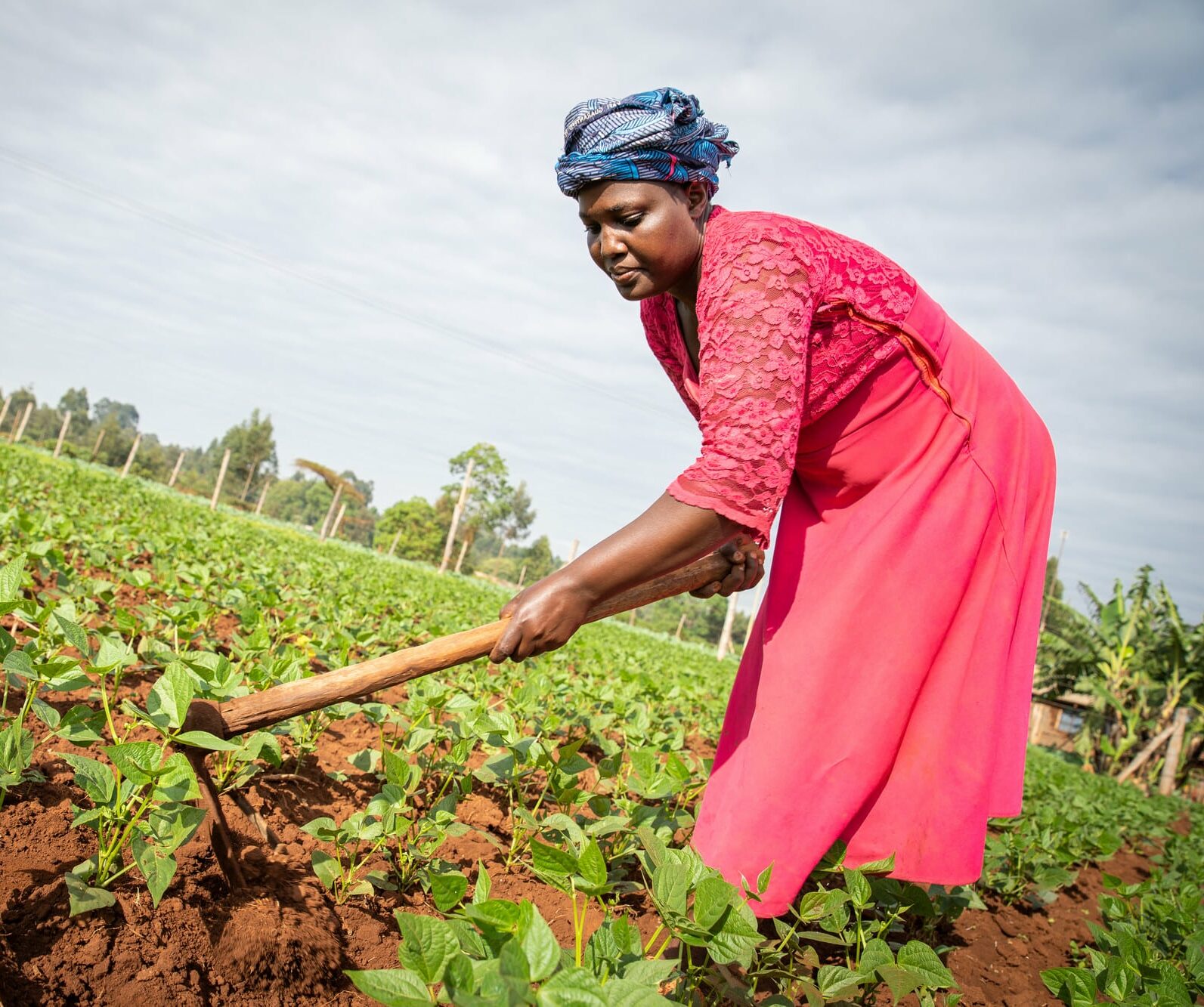
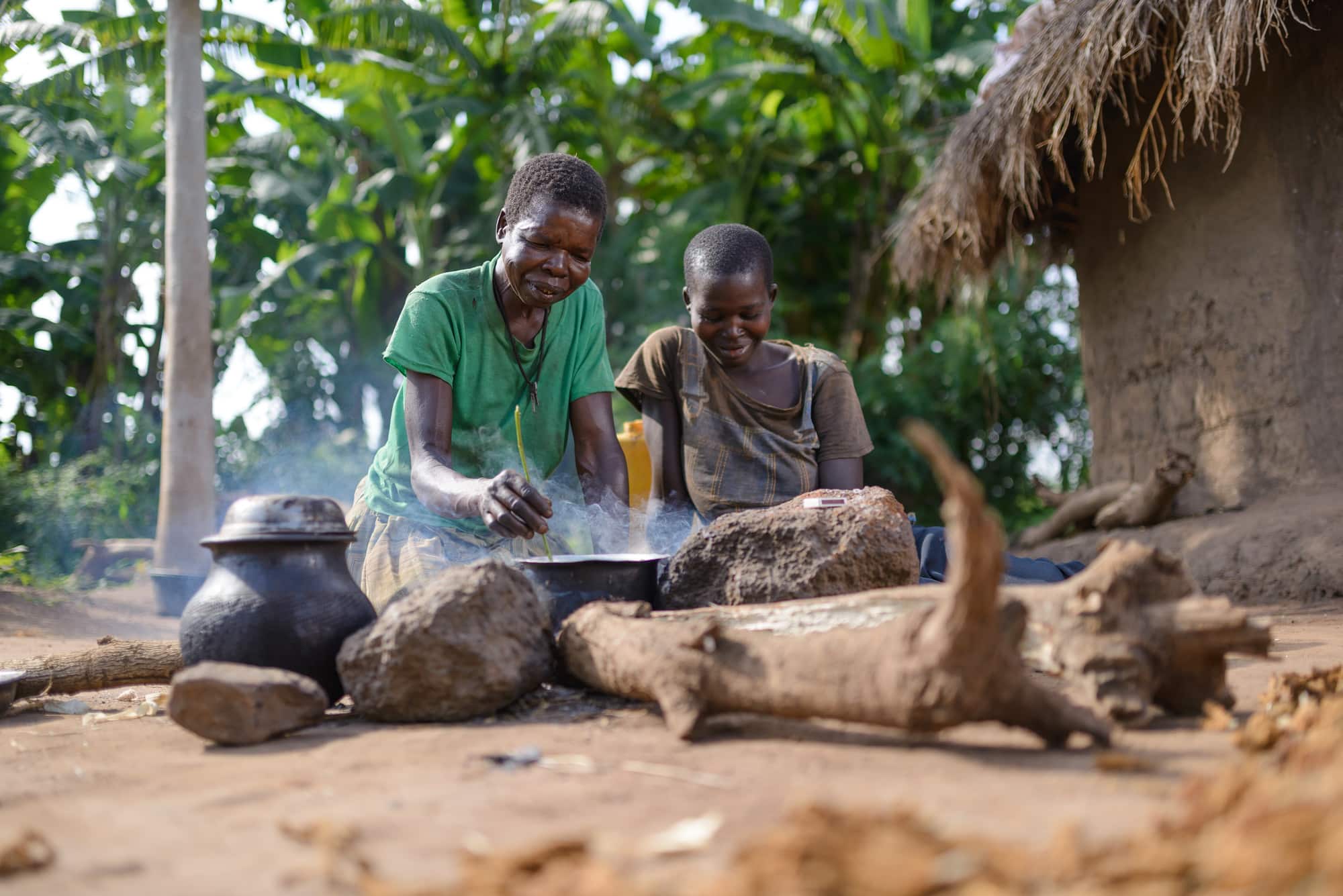
Subsistence farming is prevalent in rural communities and can perpetuate the cycle of poverty. Many farmers grow just enough for their family’s consumption, with little surplus to sell.
Without sufficient incomes, farmers cannot invest in their harvests, keeping them in a state of low yields and low incomes.
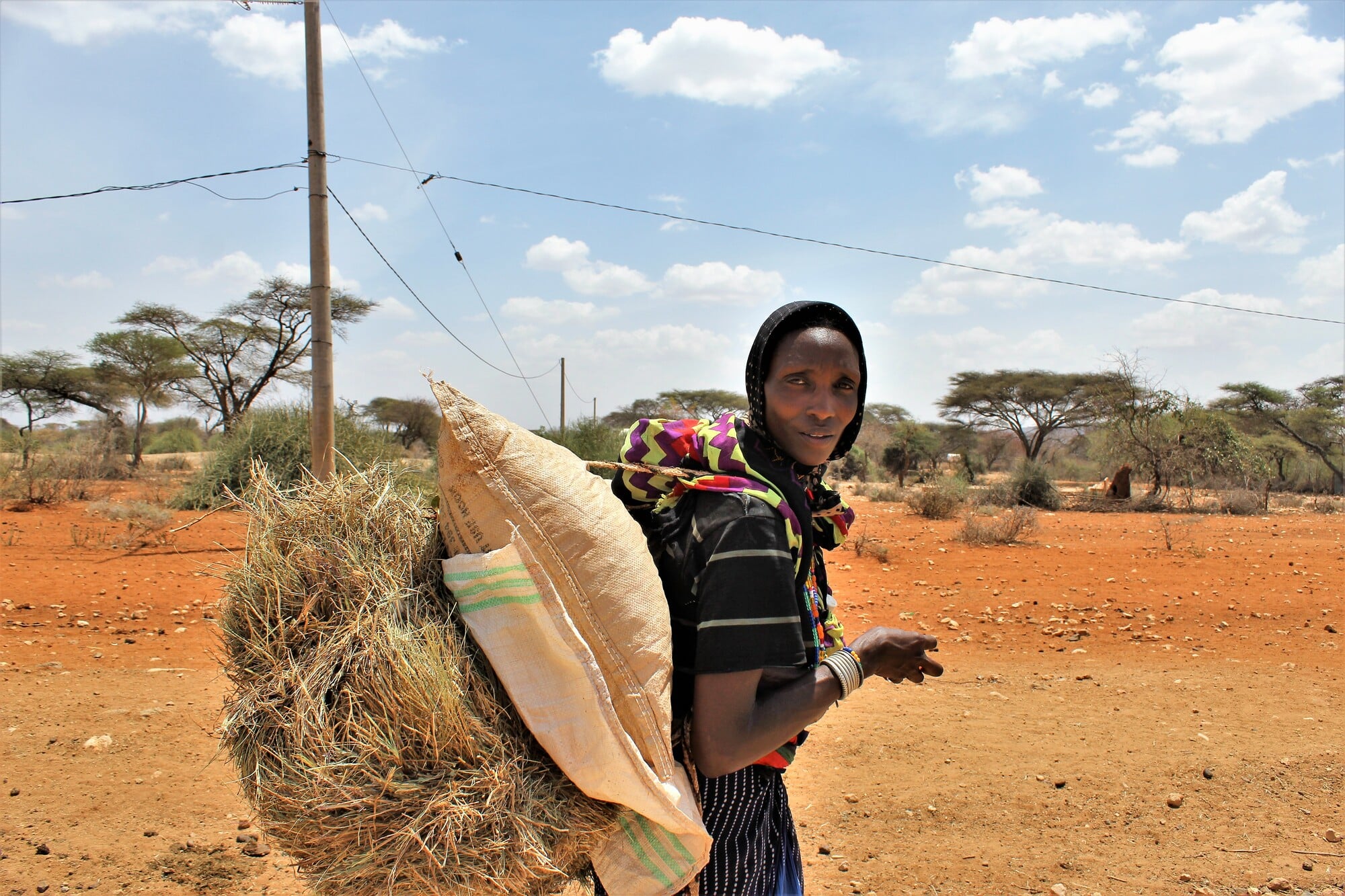
The opportunity
When farmers increase their incomes, they can invest in their farms. Increasing the quality and quantity of farmers' produce is a key factor in boosting their incomes.
Diversification allows farmers to access a wider range of markets as it reduces their dependency on a single crop. This is particularly important in eastern Africa, where climate change continues to impact the environment.
Connecting farmers to markets is crucial too. Identifying and tapping into consumer demand can help farmers to sell more and sell for more, while co-operatives allow farmers to work in groups and sell in bulk, which attracts high-value buyers.
Value addition also boosts incomes – when farmers process and market a product into something new, they can sell it for more.
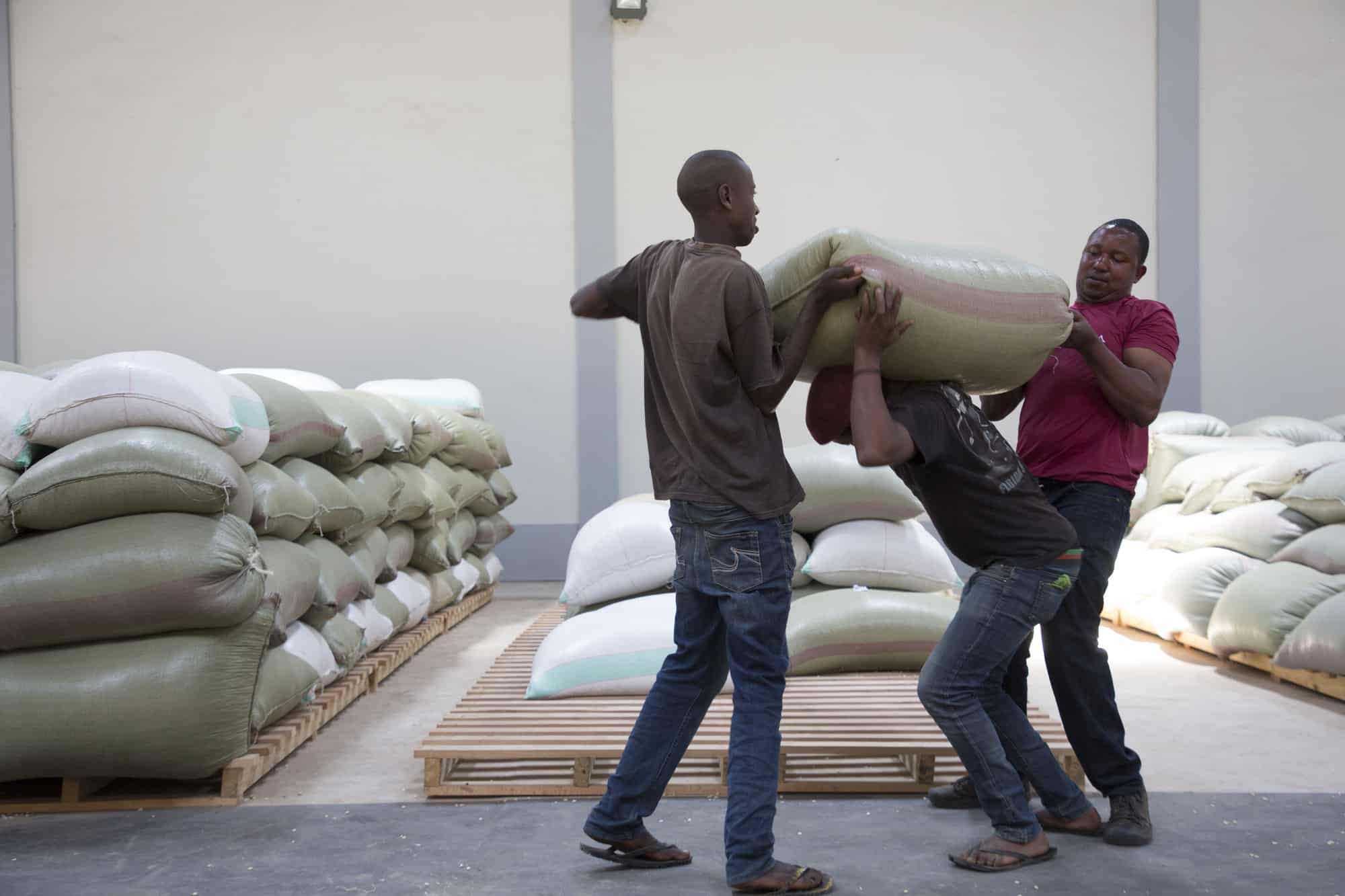
The outcome
Higher incomes lead to better living standards, enabling farmers in eastern Africa to feed their family, pay for their children’s education and improve their homes.
When women’s incomes rise in particular, it is shown to have a wider benefit for all. They tend to invest more in their children and community. And as women’s financial independence grows, whole communities have the potential to become more equitable.
Farmers can invest in new technologies like drought-tolerant seeds, which can mitigate the impacts of climate change. Farmers can then boost their productivity and enjoy more stable yields, even in dry conditions.
Higher incomes allow farmers to diversify their farming, by growing crops and rearing livestock, which builds their climate resilience and promises stable incomes.
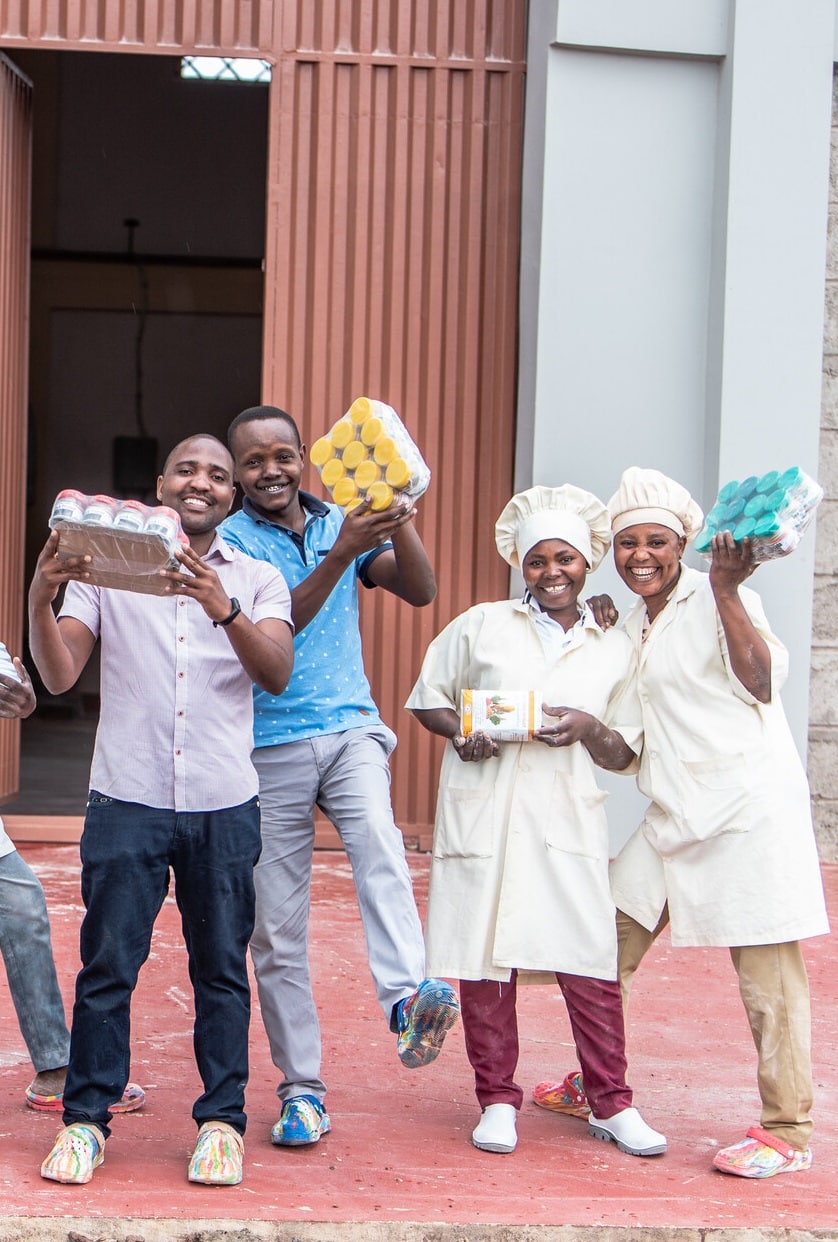
How we increase incomes
- We work with farmers to increase the quality and therefore the value of their produce by training them in good agricultural practices and providing them with access to high-quality seeds.
- We support farmers to diversify their farming so they can enjoy yields and incomes throughout the year.
- Connecting farmers to markets is a vital part of our work. We take a business approach to farming so they can sell more and sell for more.
- We help smallholder farmers to build co-operatives so they can sell in bulk.
- We train smallholders in post-harvest handling so they can extend their crops’ shelf life, stagger harvests and add value to their produce.
- We work with smallholder farmers to add value to their produce, processing and marketing them into different products.
- We work with farmers to use their surplus produce, which not only reduces food loss, it also provides extra income.
- We help to establish Village Savings and Loan Associations, which enable people in rural areas, especially women who often have limited access to finance, to come together and save money as a group and access loans. With easy access to finance, women can invest in small businesses and increase their incomes.
Watch
Related resources
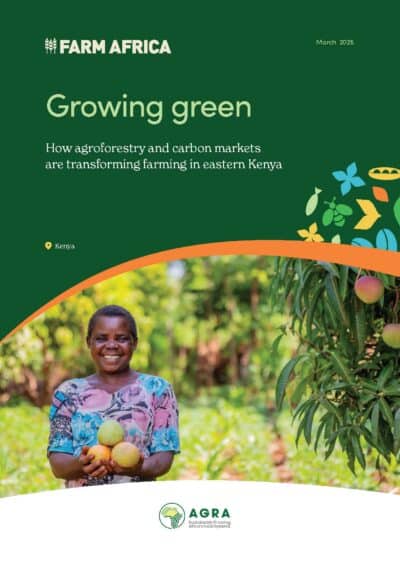
Growing green – how agroforestry and carbon markets are transforming farming in eastern Kenya
More info
Country
Kenya
Key focus areas
Act on climate change
Increase incomes
Protect ecosystems
Growing green – how agroforestry and carbon markets are transforming farming in eastern Kenya
This report charts the progress of more than 21,500 farmers in Embu and Tharaka Nithi counties in eastern Kenya who have planted trees and adopted climate-smart farming techniques.
Download (1.95mb)

Country
Kenya
Key focus areas
Act on climate change
Increase incomes
Protect ecosystems
Country
Kenya
Key focus areas
Empower women
Increase incomes
Strengthen food systems
Growing Resilience And Opportunities for Women (GROW) Roundtable Report
In October 2024, Farm Africa convened a roundtable discussion with female industry leaders in Nairobi, Kenya as part of its Growing Resilience and Opportunities for Women (GROW) initiative. This report summarises the key themes and conclusion of the discussion, which explored women’s role in the global food system and ways to drive positive change.
Download (2.16mb)
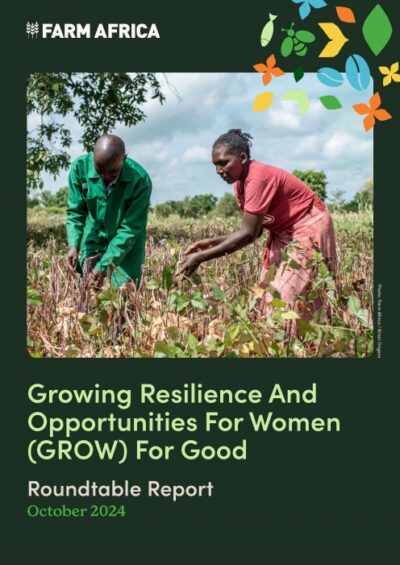
Country
Kenya
Key focus areas
Empower women
Increase incomes
Strengthen food systems
Country
Kenya
Key focus areas
Boost productivity
Increase incomes
Strengthen food systems
The Village-Based Advisor (VBA) model
Agricultural extension services to farmers are vital for enhancing productivity and production of agricultural produce in Kenya. However, the ratio of agricultural extension workers to farmers stands at 1:5,000 compared to the recommended ratio of 1:400. This paper outlines how Farm Africa and AGRA are helping to plug this gap in Embu and Tharaka Nithi counties by creating a network of Village-based Advisors (VBAs) made up of well-informed, passionate farmers who receive specialised training to provide technical extension services, inputs and market linkages to other services to other farmers.
Download (4.21mb)
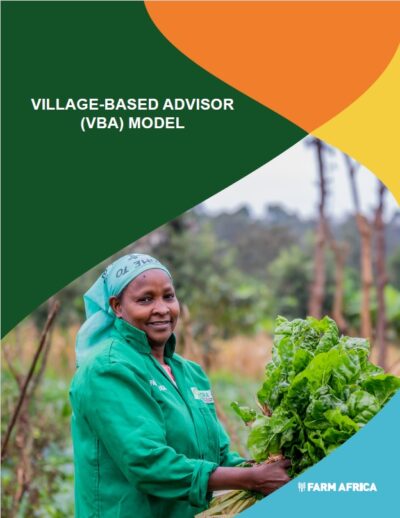
Country
Kenya
Key focus areas
Boost productivity
Increase incomes
Strengthen food systems
Country
Ethiopia
Key focus areas
Boost productivity
Increase incomes
Protect ecosystems
A greener future on a grand scale: a summary of the Bale Eco-region Phase II project
Ethiopia’s Bale Eco-region is an ecologically critical area and also home to many people who depend on its resources for their livelihood. Since 2014, Farm Africa has been leading a consortium to improve livelihoods in the region while ensuring the ecosystem is protected. The first phase of the project developed a management strategy for the region. Phase II (2019-2024), funded by the European Union, has scaled out the strategy to reach over 1.6 million people. This report summarises those Phase II activities and outcomes.
Download (3.96mb)
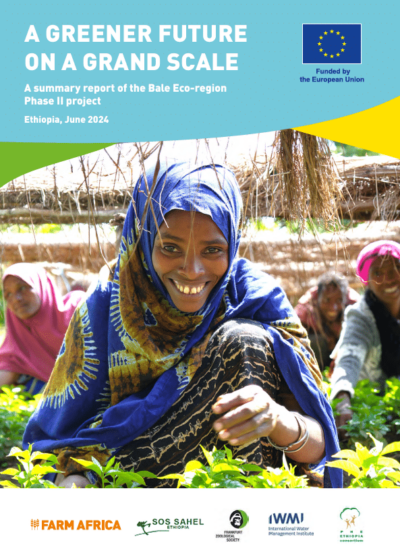
Country
Ethiopia
Key focus areas
Boost productivity
Increase incomes
Protect ecosystems
Country
Ethiopia
Key focus areas
Increase food security and nutrition
Increase incomes
Protect ecosystems
Nature-based Solutions factsheet
A four-page summary of Farm Africa’s Nature-based Solutions for Sustainable and Inclusive Development programme in Ethiopia, funded by Sida. The programme, which runs from 2023 to 2026, aims to sustainably manage forests, conserve biodiversity, build communities’ resilience to climate change and develop sustainable livelihoods through holistic nature-based solutions across six river basins in Ethiopia, clustered into three eco-regions.
Download (4.64mb)
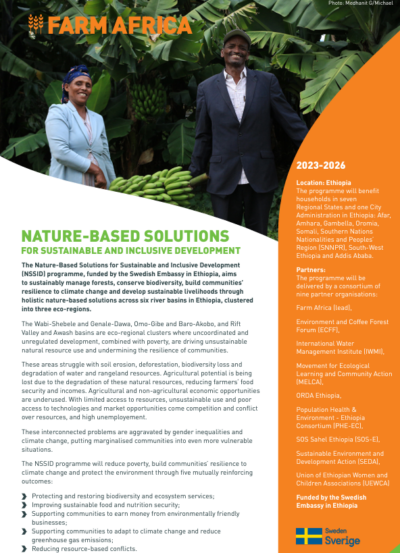
Country
Ethiopia
Key focus areas
Increase food security and nutrition
Increase incomes
Protect ecosystems
Country
Ethiopia
Key focus areas
Boost youth employment
Increase incomes
Protect ecosystems
Eco-tourism opportunity in Ilu Ababor Ethiopia
Although Ilu Ababor Zone in Ethiopia is presently unknown to tourists, a recent scoping study carried out by Farm Africa, Mattu University and Oromia Tourism Commission has found strong potential for sustainable eco-tourism development. This study summary outlines key findings and describes, in detail, 7 priority sites for eco-tourism development consideration.
Download (1.05mb)
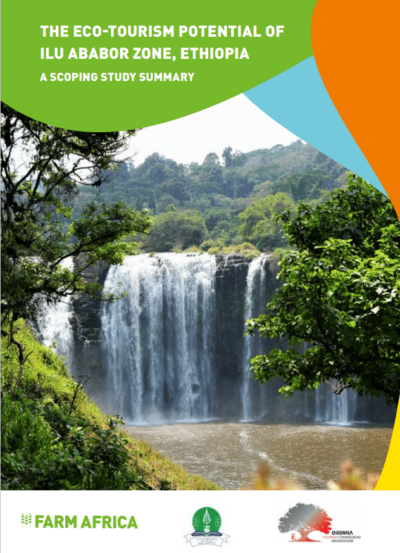
Country
Ethiopia
Key focus areas
Boost youth employment
Increase incomes
Protect ecosystems
